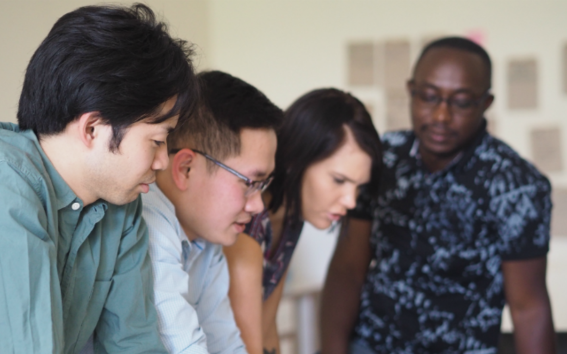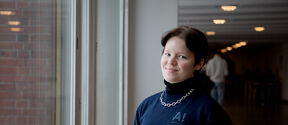'Challenge-based learning on a new level'

Riina Subra is thankful. She manages Aalto Global Impact’s PBL East Africa project, which has just completed its first year. During this time, a collaborative network has been established between Aalto University, University of Nairobi, University of Dar es Salaam, and Makerere University.
'Challenge-based learning has reached a new level in all of the universities. My colleague in Nairobi described this as a movement of challenge-based learning aiming to attract as many students and research personnel as possible,' Riina Subra says.
Encouraging each other, university personnel have developed teaching methods and practices. New multidisciplinary courses have also been implemented in all of the partner universities.
'The projects introduced in the new courses emphasise societal impact and are strongly connected to the needs of local communities,' Subra says.
For example, University of Nairobi's C4DLab developed a course which was held for the first time this spring. The students from different fields worked to expand the campus bike system and another multidisciplinary student team studied food safety together with the students of Aalto.
Multidisciplinary master's programmes at the core
The PBL East Africa project has a strong linkage with the core knowledge of teaching at Aalto and with the multidisciplinary master's programmes.
'This has been a two-way learning experience. We have been able to share thoughts about what has worked in challenge-based teaching at Aalto. At the same time we have gained a lot in our courses and the content has been significant for our students', says Professor Armi Temmes of the School of Business.
Professor Temmes led the joint team of the Capstone course in the Creative Sustainability master's programme and the Digital Services for Sustainability course. The team studied the availability of weather information for small farmers in Tanzania. The project also gave students ideas for further development in master's theses and conference papers.
Aalto students will have possibilities to cooperate with students of East African universities in the coming years as well. The PBL East Africa project continues with funding from the Ministry for Foreign Affairs through 2020.
All student teams involved in the PBL East Africa project in spring 2018 present their results and learning process in the Aalto Sustainability Day afternoon programme on 18 May at Dipoli.
Moreover, students of the SGT programme present their work in Uganda as a part of the concluding event of the SGT Studio course on 21 May at the Harald Herlin Learning Centre.
Further information
Riina Subra, Senior Manager
Aalto Global Impact
tel. +358 50 4066 251
riina.subra@aalto.fi
Read more news

Isabel Salmi emphasises that you don't have to be a math genius to study Information Technology
Third-year Information Technology student Isabel Salmi got help with developing a study technique – and found the joy of mathematics in the process
New Innovation Postdoc programme launching this spring in Aalto
Innovation Postdoc launching this spring for AI researchers eager to turn cutting-edge research into real-world impact.
Electronics and Electrical Physics student Antti Salpakari believes in a brighter future
Second-year student Antti Salpakari feels that studying electronics and electrical physics gives him the skills to create a better future.






